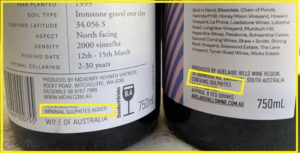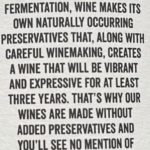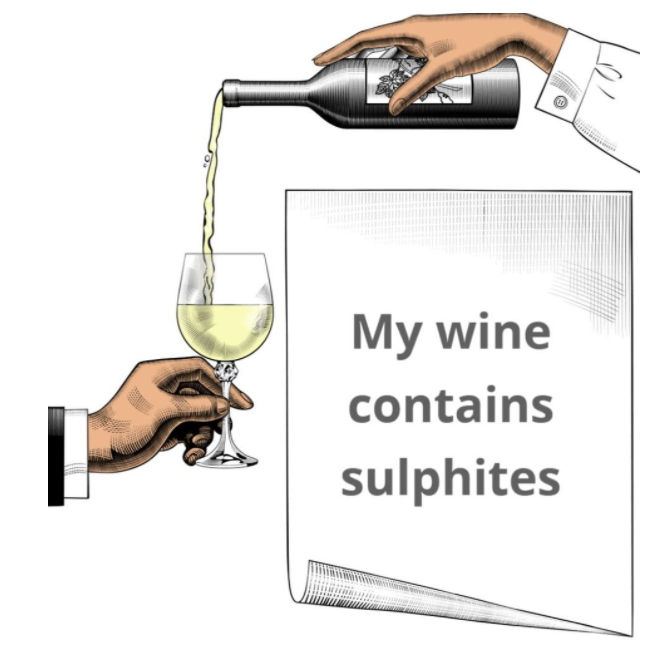Sulphites in wine, what are they? And should we worry about them? Let’s start from the beginning. Wine is an alcoholic drink. There’s no doubt our favourite fermented juice is more than booze. There are literally dozens of compounds in wine, and some of them have interesting effects on our bodies.
Some compounds in wine, though, don’t have the best reputation. You’ve undoubtedly heard about sulphites. If not, you’ve read the warning ‘contains sulphites’ on wine labels, but what are these compounds? Are they really bad for us?
What are sulphites anyway?
The name you’re looking for is sulphur dioxide (SO2). This compound can be easily found in nature —foods like eggs and even peanuts contain sulphites, and the compound is also present in most preserved food. Why? Because sulphites are an effective preservative — they keep bacteria at bay.
"When it comes to preservatives used in drinks, the one that gets the attention — and the controversy — is preservative 220, otherwise known as sulphur dioxide, along with its sulphite cousins preservatives 221 to 228."[1]
So, are sulphites in wine natural, or did someone put them there? The answer is both. Sulphites are a natural by-product of alcoholic fermentation, so all wine (beer and cider, too) has small traces of sulphites.
Of course, grape growers and winemakers also use the compound to keep pests in the vineyards away, sterilize barrels and fermentation tanks in the winery.
Fun fact: Did you know the Ancient Romans burned sulphur candles inside empty wine vessels to sterilize their wines, preventing them from becoming vinegar? That was 2000 years ago! But in spite of its long history and use in winemaking, we still seem to be intimidated by the use of sulphite.
Are Sulphites bad for you?
Sulphites are a natural compound, and they’re considered safe. Still, some people, especially people who have asthma,

might be susceptible to the substance, and it can cause an adverse reaction. Allergies to sulphites do exist. That’s why some governments demand wineries to add the ‘contains sulphites’ warning to their labels if the wine has sulphites over ten parts per million (10 ppm).
And although we make sulphites responsible for our hangovers, wine has ten times fewer sulphites than canned soup and hundreds of times less than what we’d find in dried fruit. Even French fries are packed with the stuff! Are we sure it’s sulphites giving you that nasty headache after a night of heavy drinking or is the histamines present in red wine? And last but not least, we shall not forget to drink plenty of water, allergenic or not.
What’s The Point in Having Sulphite-Free Wine, Then?
Some wineries advertise their wine has no added sulphites, and although that doesn’t mean there aren’t traces of the sulphur compound in the wine, it actually has its benefits.

Biodynamic and so-called ‘natural’ wines are made with just naturally occurring sulphites, not added sulphites, and they’re often fermented with ambient yeast instead of commercial yeast. This is pretty cool, actually, since these wild wines have exciting bouquets and often offer funky aromas that are simply irresistible — for many, these are the only ‘true’ wines. And if you suspect you’re sensitive to sulphites, these wines are definitely worth a try.
Of course, you should also consider cutting processed foods from your diet. Sulphites are everywhere! If you have any doubts, talk to your doctor. Further testing can determine if you have a sulphite allergy. In the meantime consider yourself safe, chances are sulphites are harmless to you.
References:
Don’t miss a sip! Sign up to the Sip and Savour Mindfully monthly newsletter and participate on the monthly giveaways!

